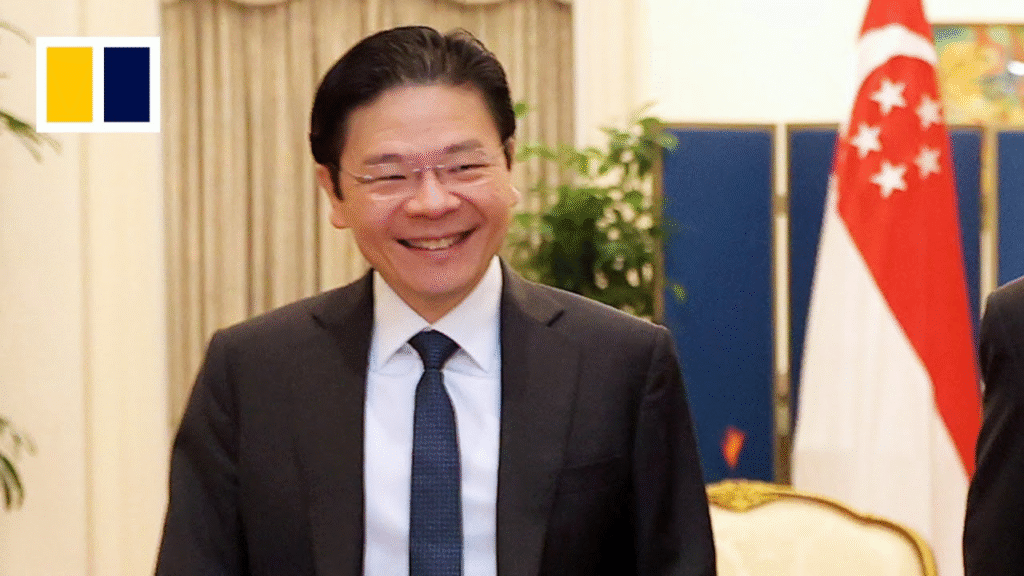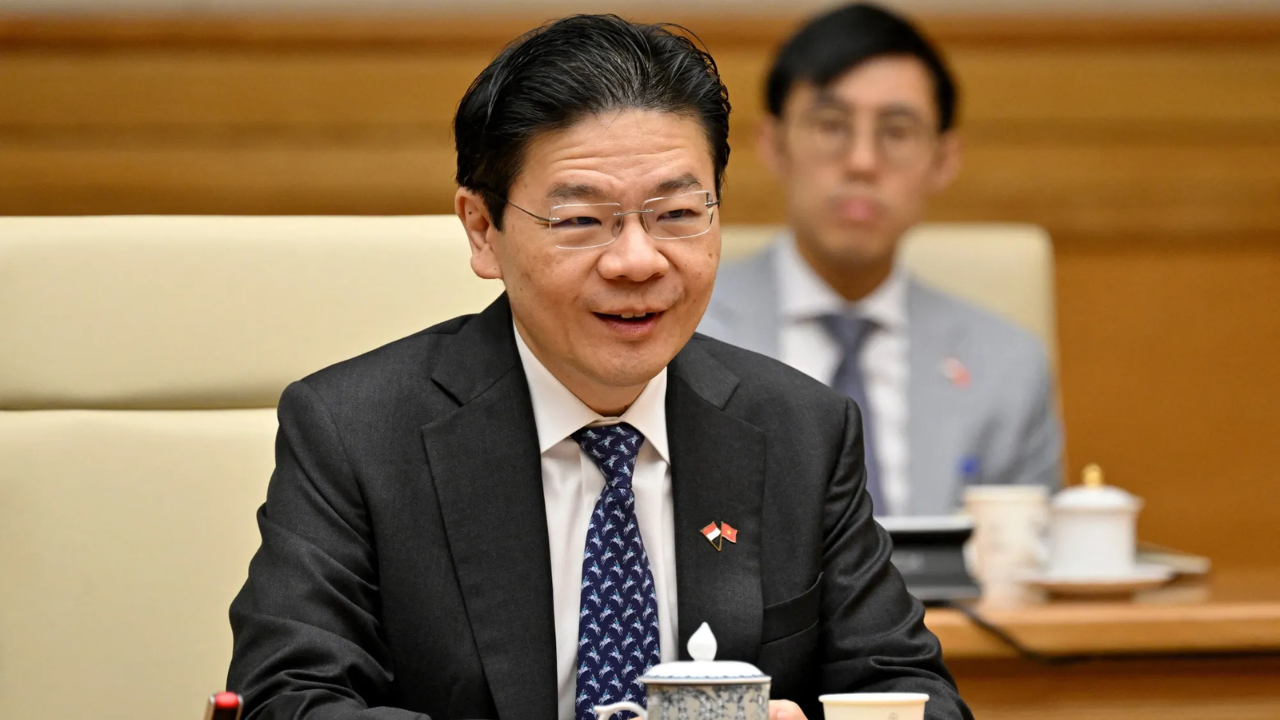In a bold move to amplify its influence ahead of the highly anticipated general elections on May 3, the Singapore People’s Party (SPP) officially launched its manifesto in the vibrant Toa Payoh Lorong 8 Market & Hawker Centre.
With its mission to challenge established political norms, the party introduced a comprehensive 16-page manifesto during a lively walkabout event.
The SPP, which plans to contest the Bishan-Toa Payoh Group Representation Constituency (GRC) and Potong Pasir Single Member Constituency (SMC), laid out nine pivotal themes in the manifesto.
These themes tackle some of the most pressing national issues, such as economic stability, growth equality, and a robust transportation system, all while ensuring the prosperity of every Singaporean.
Manifesto’s Core Themes: Economic Stability and Social Fairness
One of the most striking features of the SPP’s new manifesto is its call for stronger economic fairness and policies aimed at mitigating the economic pressures on Singaporeans.
As the cost of living continues to rise, the party advocates for immediate action that can alleviate the financial burden faced by households.
The manifesto lays out a plan focused on achieving sustainable economic growth while ensuring that the nation’s wealth is distributed more fairly across all layers of society.
The manifesto advocates for economic policies that prioritize immediate relief for citizens facing inflation. This includes a proposal for the government to allocate Budget surpluses into community development councils (CDC) vouchers, aimed primarily at assisting low-income groups.
The SPP believes that redistributing surpluses to the public would ease the financial strain and ensure that national prosperity directly benefits the population.
CDC Vouchers for Low-Income Groups: A Key Proposal
A standout proposal from the manifesto involves the distribution of government Budget surpluses through CDC vouchers. These vouchers are aimed at helping low-income families cope with rising costs.
By making use of these surpluses, the SPP hopes to channel financial support where it is most needed, ensuring timely relief for citizens struggling with inflation. This proposal underlines the party’s vision of making national prosperity a more inclusive endeavor.
The party’s secretary-general, Steve Chia, also highlighted the importance of using surplus funds responsibly. By redistributing the Budget surplus through CDC vouchers, the SPP is offering a direct method of alleviating financial pressures faced by Singaporeans.
Chia emphasized that this proposal reflects the party’s goal to keep the people’s well-being at the forefront of the national budget.
Deferring GST Increases Until Budget Deficit Justifies It
To further ease the strain on Singaporeans, the SPP is suggesting that any proposed increases to the Goods and Services Tax (GST) be delayed until the country’s Budget deficit exceeds 3% of government revenue for three consecutive years.
The SPP stands firm in the belief that a balanced Budget should not involve unanticipated tax hikes unless absolutely necessary. Chia condemned the practice of amassing surpluses without being transparent about the national reserves, urging for clear communication from the government about the state of the country’s finances.
The proposal to delay GST hikes is an important one, especially for middle and lower-income Singaporeans who may struggle with an additional tax burden. By holding off on any potential tax increases, the SPP aims to create more financial stability for families and individuals alike.
Progressive Taxation and Reviewing Trade Agreements

The SPP’s manifesto also addresses issues related to wealth inequality, particularly the concentration of wealth in the hands of a few. To tackle this, the party proposes increasing income taxes for the top 2% of earners.
The SPP is also in favor of reinstating the estate duty on ultra-high-net-worth individuals, which was removed in 2008. The reintroduction of estate duty aims to ensure that the wealthiest contribute more to the national coffers.
Moreover, the party is calling for a review of the India-Singapore Comprehensive Economic Cooperation Agreement (CECA), which was first signed in 2005.
Chia emphasized the need for reforms in the agreement to prevent job displacement among local professionals, managers, executives, and technicians (PMETs). The SPP’s approach seeks to strike a balance between ensuring that Singapore remains an attractive global business hub while protecting local workers’ interests.
Reducing Foreign Dependency and Enhancing Job Security
Another significant focus of the SPP’s manifesto is reducing Singapore’s dependency on foreign labor, particularly in sectors where automation can replace manual jobs. The SPP is proposing a gradual reduction in Special Pass and Employment Pass quotas.
Additionally, it calls for lowering the dependency ratio in industries that can rely on automation technology. The SPP is addressing concerns that many residents feel about the influx of foreign workers and the impact it has on local job opportunities.
Chia expressed his commitment to reviewing current employment policies and making necessary adjustments. He noted that job displacement due to foreign labor influx and automation was a common concern among many Singaporeans.
To address this, the party’s manifesto aims to ensure that local workers receive priority when it comes to job opportunities, particularly in sectors where automation and technology can enhance productivity.
Public Transport Investments: Ensuring Safety and Reliability
The manifesto also proposes significant investments in Singapore’s public transport infrastructure. With an emphasis on ensuring reliable and well-maintained services, the SPP advocates for increased funding to improve the upkeep of the MRT and bus networks.
Chia pointed to the recent incident where a platform screen door at Braddell MRT station malfunctioned, highlighting the need for a more thorough maintenance program to ensure the safety and reliability of the public transport system.
The SPP’s commitment to public transport goes beyond just fixing existing infrastructure. The party envisions a sustainable transport system that can cater to Singapore’s growing population and serve future generations efficiently.
By investing in robust transport networks, the SPP aims to maintain the city-state’s reputation for having one of the best public transportation systems in the world.
Reflecting on the Party’s Track Record
Looking back at the party’s previous efforts, Chia reflected on his work advocating for elderly welfare, which ultimately led to the introduction of the Pioneer Generation Package in 2014.
The SPP’s manifesto continues this tradition of seeking long-term solutions that benefit the country’s citizens, particularly the most vulnerable.
The SPP’s new proposals aim to stimulate meaningful discussions in Parliament, ensuring that the party’s ideas can be considered in future national policies. Chia confirmed his candidacy for the Bishan-Toa Payoh GRC, but the specific constituencies for other party candidates have not been finalized yet.
SPP’s Election Strategy
With the upcoming general election around the corner, the Singapore People’s Party is positioning itself as a force for change, advocating for policies that prioritize fairness and economic stability.
By championing issues that directly affect the everyday lives of Singaporeans, the SPP hopes to make a significant impact in the 2025 election.

